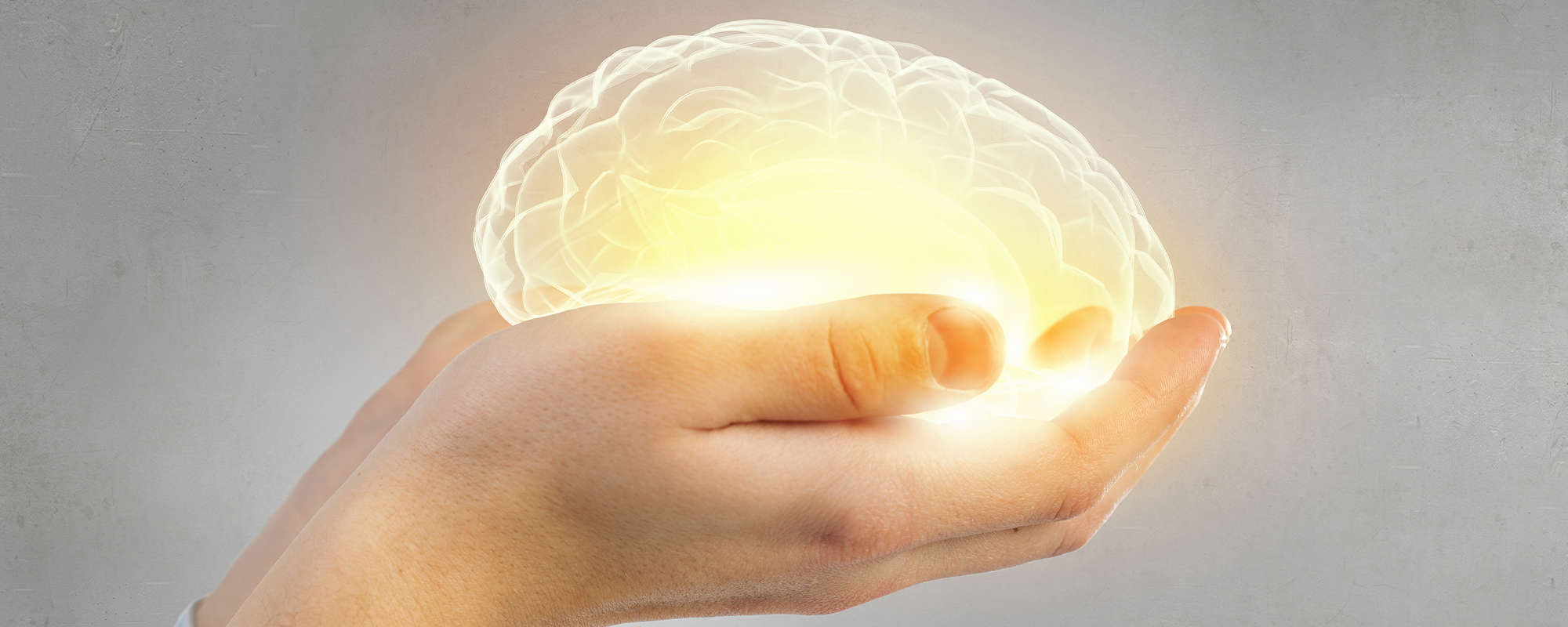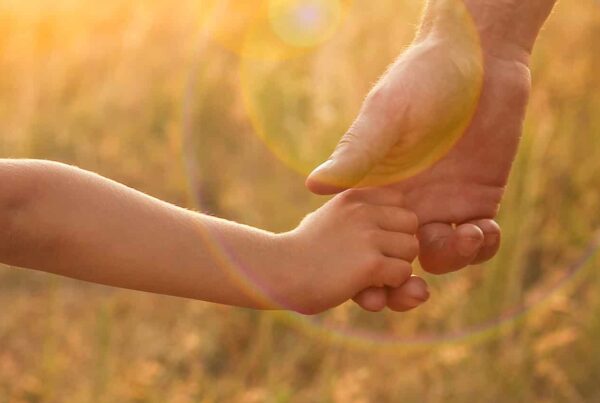Tucked away in my treasure trove of mothering memories, I can still see the moment like it was yesterday. My first little one, rocking cute dungarees and welly-boots. Crouched over, with his podgy hands tucked between thighs and tummy, completely captivated and mesmerised by a bee dancing on a dandelion.
With a milk-stuffed baby tucked under one arm and a nappy bag in the other, I was barrelling through my ‘must-do’s’ between feeds – in a world of ‘hurry-up, it’s time to go!’ Yet, in that moment, watching the not-to-be-hurried discovery and quiet wonderment of my child, I had a beautiful reminder to honour my child’s mental health and wellbeing non-negotiables.
The Childhood Mental Health Non-Negotiables
As parents, we’re inundated with education about our child’s diet, sleep, and movement-related physical health needs. We’re schooled in looking for, celebrating, or being concerned about, the achievement of developmental milestones. Yet, in all of that education, how much do we know about the developing mental health of our children; the risk factors and protective factors, the non-negotiables and warning signs? Being that a firm foundation of mental health in childhood is the most powerful predictor of life success and happiness, leaving it to chance discoveries and realisations is simply not good enough.
Regardless of age, stage or gender, there are fundamentals that every child needs as a firm foundation of mental health and wellbeing. Now that’s not to say that mental illness means that these factors were necessarily missing in childhood, rather, we know that really focusing on these fundamentals is a great mental springboard to start every child with.
These are the Non-Negotiables from Which Great Things Grow
From day one and onwards, eye contact with our babies stimulates something called ‘serve and return’ in their brains. In those moments of face-to-face connection, something truly beautiful happens. We turn on love, trust and connection-seeking, and we strengthen attachment and activate empathy.
Responding to our children’s big and little hurts and frustrations by being calm ourselves and helping our child to become progressively more efficient and independent in finding their own calm, lays the foundation of resilience and coping.
Like with dandelion gazing, childhood’s slow-ticking clock has its own beat, with so much ‘less’ needed within the ‘more’. Honouring the need for more time to explore, understand, trust and engage, with less hurry-hurry, and less scheduled activities.
Looking for and celebrating our child’s strengths activates their sense of self-identity, self-worth and self-esteem. It means remembering that their childhood is not ours to fill with our own wishes and preparations for a budding coder, athlete, musician or dancer, but to accept and amplify their gifts, talents and interests.
Those are the childhood mental health non-negotiables, yet, when we set them against the reality of 21st Century family and school life, it’s not hard to see where things might start to go off track. There’s the pull of that shiny little screen gobbling up our attention and interrupting vital serve and return interactions during feeding, play and family time.
Busyness is worn like a crown. “Super-women” are idolised on socials, looking like they’ve got it all effortlessly together, mixing work and regular exercise with raising perfect-looking children, those always with a merit certificate or trophy in hand. The glorification of ‘busy’ has meant a trade-off against honouring the slow-ticking clock of childhood. Too much, too soon and too often.
We Must Get Serious About Protection
It should alarm every Australian parent that suicide is the leading cause of death in our young people. Yes, really. Nationally, we’re experiencing rising levels of childhood anxiety and depression, with the average age of presentation getting increasingly younger. One in three girls and one in five boys experience anxiety, and one in seven children have a mental disorder.
Of course, while suicide sits right at the top of the pile of harms that happen, there are others. Abuse, exploitation, exclusion and over-exposure join the critical drivers of mental ill-health and understanding the pressures of 21st Century life for our young people equips us all to have better protective conversations and actions.
Talking to Children About Suicide
With national mental health campaigns destigmatising mental illness and help seeking, it comes hand-in-hand with a higher awareness of suicide which can open the door to some sticky conversations with our young people. It’s a conversation that shoulder partners the sex conversation for many parents in terms of uuughh-factor.
As a parent you might worry that talking about suicide might somehow open your child’s thinking to the possibility. But by taking a positive and proactive approach to talking about mental health being just like dental health – regular check-ups with a bit of work from time-to-time – it becomes less focused on the act of suicide and more focused on the preventative actions.
R U OK? Day is every family’s opportunity to start, and continue, the conversation about mental health. Part of equipping our children for life is normalising that hard stuff happens – to everyone.
That no one gets a leave pass from life’s lemons. By taking a positive approach to this conversation, we can teach our children to know the signs of feeling overwhelmed and emotionally under-resourced, reassure them that everyone needs help, and that asking for help is strong and courageous. Address the question of, “What is suicide?” if it comes up directly, however, the much more powerful conversation is about the warning signs and ways to find help.
It’s On Us
As a therapist I have seen what the very worst moments in a parent’s life look like when it all goes wrong. Borne witness to grief that hurts to be in the presence of. Held space for stories so sad that every cell resonates with pain. The mental health of our children is paramount, it’s vulnerable and it needs our urgent and collective attention.
Protection of our children’s mental health is on us. It starts in the choices we make in our homes that honour the non-negotiables of a mentally healthy childhood. Managing our own and our child’s device use and digital exposure. Not being a slave to too much, too soon and too busy. Teaching our children to look after their mental health by knowing their own emotional warning signs – and those of others – and to ask for help courageously. We also need to look after our own mental health so that it lights the path to our precious children doing the same. It’s OK not to be OK and to ask for help early, often and effectively – parenting is tough, and life is bumpy. Remember to fit your own oxygen mask first.
To find out more about RU OK? Day and starting the conversation head to www.ruok.org.au
Need Help or Support?
If your life is in danger CALL 000
If you or someone you care for is in need of immediate assistance you can contact the below National 24/7 Crisis Counselling Services:
Lifeline – 13 11 14 – 24/7
Beyond Blue – 1300 22 4636
Butterfly Foundation National Helpline (for people affected by eating disorders and negative body image issues) 1800 334 673
Kids Helpline – 1800 55 1800
MensLine Australia – 1300 789 978
QLife (anonymous and free LGBTI peer support and referral) 1800 184 527
Need More Information / Resources?
R U OK?
Mental Health Australia
Head to Health
Black Dog
Headspace
ReachOut
World Mental Health Day
Podcast: For more on R U OK? Day, and having these tough discussions with your child, tune into Episode 111 of the PakMag Parents Podcast with Claire Orange joining Bree.
For more on Claire and her work:





